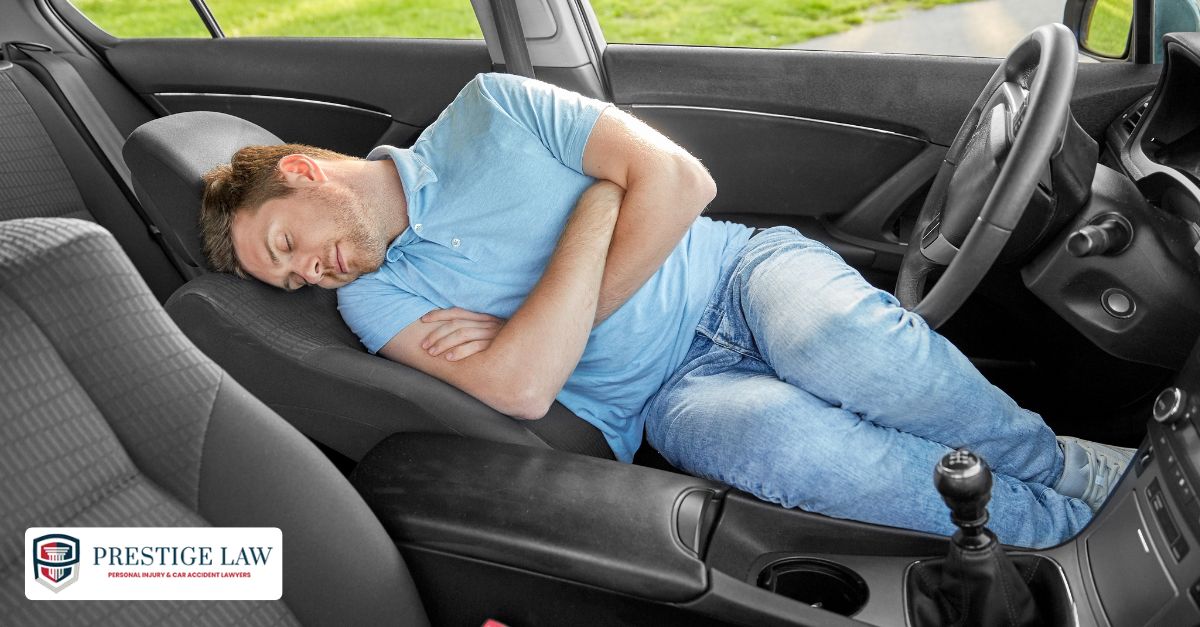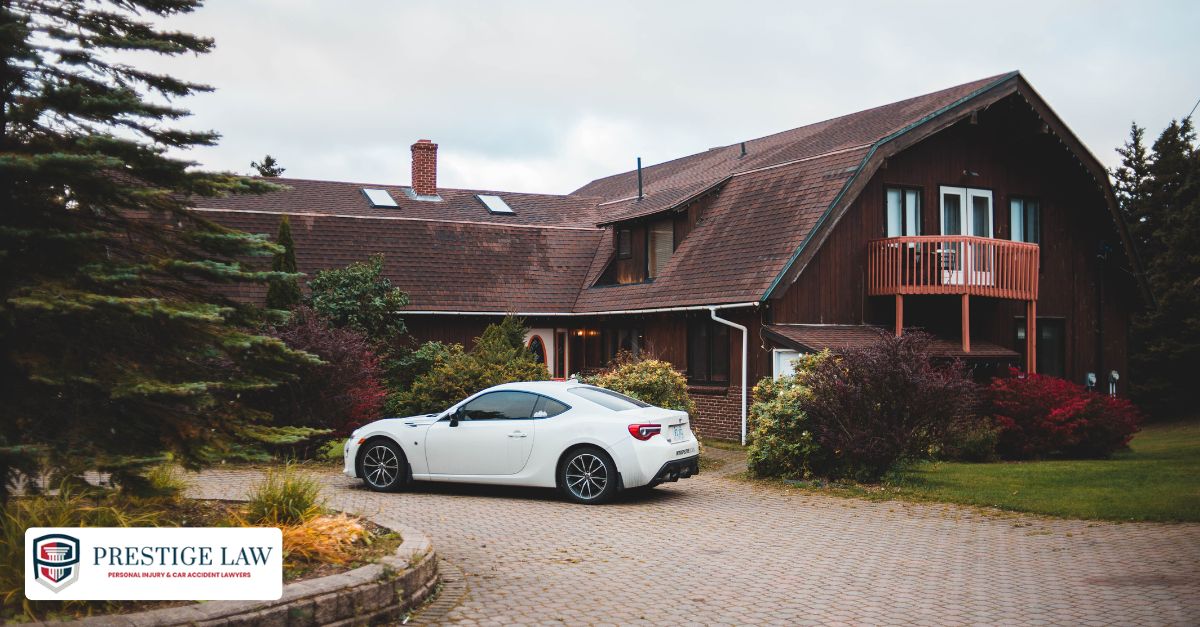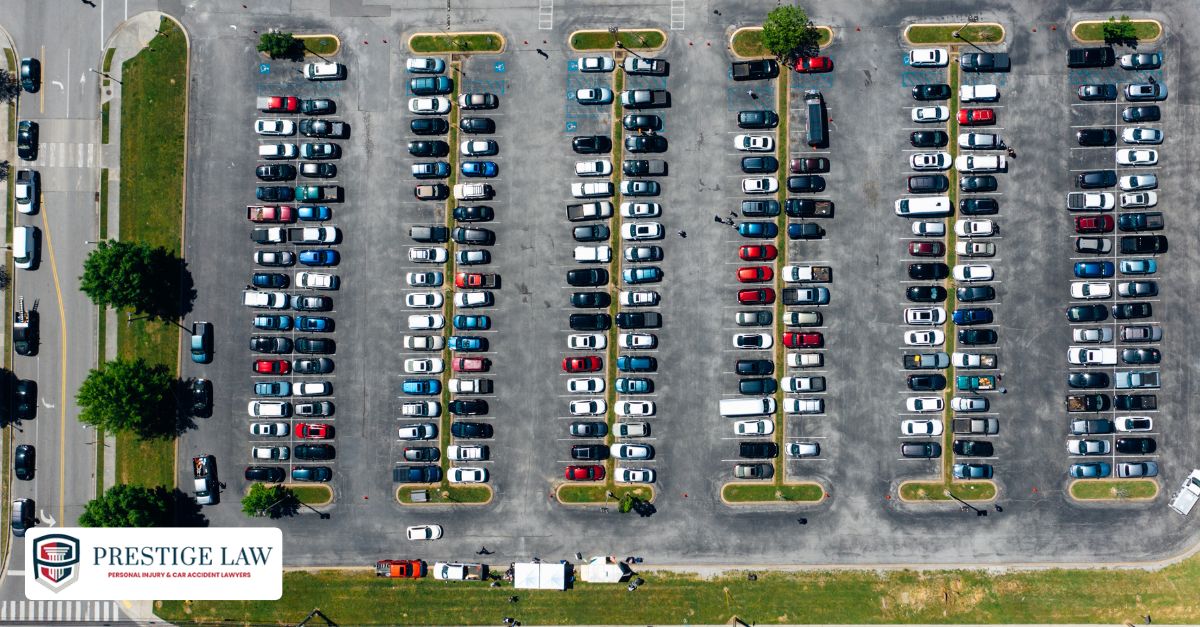May 15th, 2025 / by Prestige Law Personal Injury & Car Accident Lawyers - Category Car Accidents
California Car Sleeping Laws: What Drivers Need to Know
Can you really get in trouble just for sleeping in your car? In California, the answer isn’t a simple yes or no. It’s a legal grey area shaped by state laws, city-specific ordinances, and the exact location you choose to park.
What’s allowed in one city might get you ticketed or towed in another. Whether the spot is public or private, the time of day, how long you stay, and even how your car looks can all affect whether you’re breaking the law.
If you’re living in your vehicle by choice or because you have no other option, it’s essential to understand the laws that apply to you. Taking the time to learn the rules can help you avoid costly legal trouble and protect your safety.

What California State Law Says
While California has no statewide law banning sleeping in your car, each city can set its own rules. This means the legal answer changes depending on where you are parked.
In most California cities, you can legally sleep in your car on public streets for up to 24 hours. However, this does not mean you’re allowed to live in your car full-time.
Many cities have laws against using a vehicle as a permanent residence. If you stay too long, violate posted parking limits, or appear to be living in your car, you could face tickets starting around $100.
Laws are stricter in residential neighborhoods. Cities like Los Angeles, San Diego, and San Francisco have specific rules that make overnight vehicle sleeping more restricted:
- Los Angeles: Municipal Code 85.02 bans sleeping in vehicles in residential areas between 9 p.m. and 6 a.m., but allows it in certain non-residential zones.
- San Diego: Follows a similar rule, especially around schools and homes during nighttime hours.
- San Francisco: Enforces broad anti-camping laws that make sleeping in vehicles illegal in many areas citywide.
These restrictions have gained more attention as RentCafe’s cost of living data shows California’s living costs are about 50% higher than the national average. With housing prices far above typical U.S. rates, many people turn to their vehicles as temporary shelter to avoid the state’s high rental and housing costs.
But what feels like a survival strategy can quickly turn into a legal problem. Without knowing the local rules, drivers risk tickets, towing, or even arrest—especially in cities with strict laws on vehicle habitation.

Where can you legally sleep in your car in California?
Sleeping in your car isn’t always illegal in California, but knowing where you park makes all the difference. Here are some of the safest and most commonly accepted places to rest overnight without risking fines or towing.

Rest Areas
California rest stops are designed to prevent drowsy driving and typically allow drivers to park for up to eight hours. These spots are ideal for short breaks when travelling on highways.
Just remember to stay inside your vehicle and avoid setting up camp outside. Rest areas are meant for resting—not long-term stays.
Walmart and 24-Hour Retailers
Some Walmart stores and 24-hour businesses allow overnight parking. However, since these are private properties, you should ask the store manager for permission first.
Tip: Choose well-lit areas and park away from entrances to avoid blocking customer traffic, reducing the chance of unwanted attention or pedestrian accidents.
Truck Stops
Truck stops are open 24/7 and offer useful amenities like restrooms, food, and showers. While they are primarily for truck drivers, many allow cars to park overnight as well.
Be mindful not to occupy spaces reserved for large commercial trucks.
Bureau of Land Management (BLM) & Public Land
BLM lands often allow dispersed camping, which includes sleeping in your car. In many areas, you can stay for up to 14 days before needing to move at least 25 miles away.
Always check posted signs to ensure overnight parking is permitted. If you see a “No Overnight Parking” notice, move on to avoid fines.
Campgrounds & RV Parks
Campgrounds and RV parks provide a safe and legal option, usually for a small fee. They often include access to bathrooms, water, and Wi-Fi.
You can find available sites using platforms like Hipcamp or Recreation.gov.

Private Property (With Permission)
If you have a friend, family member, or business owner’s permission, you can legally park on private property.
Never assume it’s okay without asking—parking without permission can lead to trespassing issues.
Churches & Small Businesses
Some churches and small businesses may allow overnight parking if you ask politely during open hours. Be respectful, limit your stay, and avoid overstaying your welcome.

Safe Parking Programs
Cities like Los Angeles and San Diego run Safe Parking Programs designed for people living in their vehicles. These designated lots offer:
- Legal overnight parking
- Restrooms
- Access to social services
For example, Safe Parking LA provides secure spaces for up to 200 vehicles. However, spots fill up fast, so check availability in advance.
Legal and Practical Tips for Sleeping in Your Car
Sleeping in your car isn’t always against the law, but where and how you do it matters. Following these tips can help you avoid legal trouble and stay safe on the road.

Avoid Residential Areas and Schools
Many cities in California ban overnight vehicle sleeping in residential neighbourhoods or near schools, especially between 9 p.m. and 6 a.m.
Parking in these areas could lead to warnings, tickets, or police visits. Instead, look for commercial zones or designated overnight parking lots.
Pick Safe, Legal Parking Spots
Choose well-lit areas with security cameras if possible. Places like 24-hour retail centres, truck stops, or rest areas are usually safer choices.
Always check for posted signs. If a lot is marked with “No Overnight Parking,” move along to avoid fines or towing.
Stay Inconspicuous
Keep a low profile to avoid drawing attention:
- Use sun shades or curtains for privacy.
- Keep noise down—no loud music or speakerphone calls.
- Avoid moving around too much inside your car.
- Store belongings out of sight to prevent theft or suspicion.
Park Legally and Follow Local Rules
Make sure you are not parked in:
- A tow-away zone
- A permit-only area
- A space marked “No Overnight Parking”
Local parking laws can change without notice, especially in major cities like Los Angeles or San Francisco. Always double-check signs and time limits before settling in.
Understand Your Rights
Under the Fourth Amendment, you have the right to protection from unlawful searches and seizures. However, your privacy in a vehicle is more limited than in a home. Police generally need probable cause, a warrant, or your consent to search your car.
Check Your Insurance and Documents
If you frequently sleep in your car, make sure you have:
- Valid vehicle insurance
- Up-to-date registration
- Your driver’s license or ID readily available
Keep in mind that some insurance companies may have specific requirements if you are living in your car full-time, including the need for a permanent address on your policy.

Consequences of Violating Local Laws
Sleeping in your car where it’s not allowed might seem like a minor issue, but it can quickly turn costly or risky, especially in cities with strict vehicle habitation laws.
Fines and Penalties
Many cities in California issue fines ranging from $25 to $500 for sleeping in your car in restricted areas. Repeat offenses can lead to higher fines and additional penalties.
Towing and Impoundment
If you ignore warnings or rack up multiple tickets, your vehicle could be towed or impounded. This adds towing and storage fees, making it much more expensive to get your vehicle back.
Potential Arrest or Legal Trouble
While sleeping itself isn’t usually an arrestable offense, related violations like:
- Trespassing
- Loitering
- Outstanding warrants
could lead to arrest or legal action, especially if combined with other offences.
Police or Property Owner Confrontations
Parking in unauthorized or private areas can lead to confrontations with:
- Property owners
- Security personnel
- Law enforcement
These encounters can be stressful or dangerous, especially if you feel unsafe or unprepared to explain your situation.
Personal Safety Risks
Sleeping in isolated or poorly lit areas increases your risk of:
- Theft or vandalism
- Harassment
- Exposure to bad weather or unsafe conditions
- Car accidents involving distracted or impaired drivers in poorly lit or high-traffic areas
- Serious injury or even wrongful death in rare cases, especially if parked in high-traffic or unsafe areas without proper protection
Choosing the right location can help you avoid these risks and protect yourself.
Conclusion: Know the Rules Before You Park
Sleeping in your car in California isn’t always illegal, but local rules and parking restrictions vary from city to city.
Some areas are more lenient, while others—like Los Angeles, San Diego, and San Francisco—enforce strict overnight parking laws.
Taking a few minutes to check signs, local ordinances, and legal parking options can save you from:
- Expensive fines
- Towing headaches
- Unwanted police encounters
If you’ve been harassed, injured, or put at risk while living in your vehicle—especially due to unsafe work conditions or financial hardship—Prestige Law Firm is here to help.
With over two decades of experience in personal injury and work-related claims, we fight to protect your rights and help you recover the compensation you deserve.
We offer free consultations and you don’t pay unless we win.
Contact Prestige Law Firm today to speak directly with an attorney who understands your situation.
FAQs
Can you sleep in your car at a rest stop in California?
Yes. California allows you to sleep in your car at rest stops for up to eight hours, but you must stay inside your vehicle. Setting up camp outside your car is not allowed.
Is it illegal to live in your car in Los Angeles?
Yes. Los Angeles prohibits sleeping in vehicles in residential areas and near schools or parks between 9 p.m. and 6 a.m. However, you may be allowed to park overnight in certain non-residential areas if local signs permit it.
What happens if the police find you sleeping in your car?
Police may give you a warning, issue a ticket, or ask you to move, depending on local rules and where you are parked. If you are in a legal parking spot, they generally cannot force you to leave without a valid reason.
Is sleeping in your car an arrestable offence in California?
Sleeping alone in your car usually doesn’t lead to arrest. However, if you’re trespassing, have outstanding warrants, or break other local laws, you could face legal consequences.
